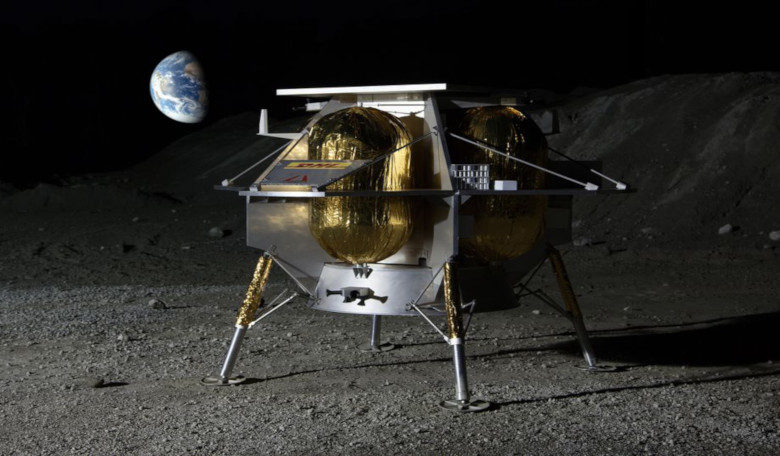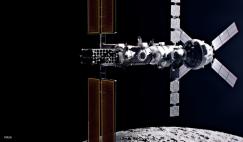Not put off by other recent ill-fated attempts to land on the Moon, Spacebit, a private held UK company, has announced this week at the UK Space Conference 2019 that it has signed a joint agreement with Astrobotic to begin commercial and scientific lunar exploration starting in 2021.
For the mission, Spacebit will utilise Astrobotic’s Peregrine lunar lander, which will be launched on a Vulcan Centaur rocket from Cape Canaveral Air Force Station in Florida. The launch will carry the first lunar lander from American soil since Apollo.
CEO of Spacebit, Pavlo Tanasyuk, said of the recent signing, “We could not be more excited to fly this mission with Astrobotic. This mission will result in the first payload from the UK to reach the Moon surface and mark the beginning of a new era in commercial space exploration for Britain.”
“Astrobotic is very excited to bring Spacebit’s first payload to the Moon. Spacebit has pioneered a captivating new way of working on the lunar surface, and we look forward to more details being released soon,” said Astrobotic CEO John Thornton.
Based in London, Spacebit, believes in creating commercially sustainable data and robotics business in space exploration by keeping things low cost. “Our main goal is to run commercial space missions and to democratise access to space exploration,” says the company’s website. “Our plan is to tokenise space missions, from CubeSats and low orbit, to the Moon projects and asteroid mining.”
And they want the general public to get involved. “Our aim is to decentralise what was once only accessible for governments and large organisations. By decentralising our missions we also enable citizens to directly take part in or benefit from space programmes,” Spacebit says.
How will they do this? Spacebit have had their eye on cryptocurrency I.e blockchain technology for the last six says Tanasyuk. We were probably the first company to think about space exploration and funding with cryptocurrency, said Tanasyuk, but in 2013 “it was a bit too early to do anything like that,” so it was put on hold and revived during the World Economic Forum this year he added.
Traditional venture capital routes of funding space exploration are by nature risky and need long-term investments, so for the average person wanting to get involved in a space project and reap their share of wealth, tokenised venture capital (VC) funds are seen as a better way to invest in early-stage startups.
Tokenisation can provide the needed liquidity – the ability to turn an asset into cash – for space exploration says Spacebit and there is enough money in crypto to support major space missions says Tanasyuk.
The company is also in partnership with Goonhilly Earth Station; a large radiocommunication site located on the Lizard peninsula in Cornwall, England. At one time, Goonhilly was the largest satellite earth station in the world, with more than 25 communications dishes in use and over 60 in total. Over the last few years, Goonhilly has seen a resurgence in interest and this partnership will see Goonhilly and Spacebit open the world's first space communications gateway, to introduce space communication services powered by blockchain and smart contracts.
The deal also cements Goonhilly's position as the world's first commercial deep space network service, providing necessary additional capacity over and above existing NASA and ESA deep space networks.











